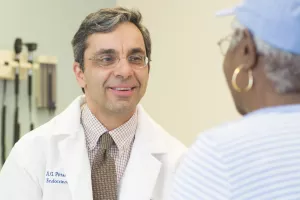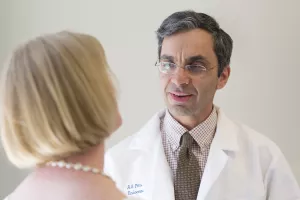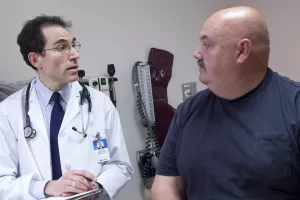The Division of Endocrinology, Diabetes, and Metabolism at Tufts Medical Center (Tufts MC) is comprised of a team of exceptional endocrinologists. We take pride in our legacy of innovation and are dedicated to providing the best possible patient care. The endocrine system controls many different body functions, and dysfunction in this system can contribute to a wide range of illnesses affecting virtually every organ system.
Our goal is to understand the basis of these diseases and the endocrine system through research, develop more effective treatments and provide the highest standards of care to improve the lives of patients with endocrine disorders. We are committed to passing on our knowledge and expertise to generations of future physicians through our Gerald J. and Dorothy R. Friedman Fellowship Program.
Our physicians collaborate closely with primary care physicians and other specialty services, such as surgery, neurosurgery, ophthalmology, radiology, nuclear medicine, nutrition, and podiatry. This collaboration ensures the coordinated diagnosis and management of complex endocrine diseases, such as:
- Pituitary and hypothalamus diseases
- Adrenal disease
- Islet cell tumors
- Diabetes
- Lipid disorders
- Thyroid disease, including thyroid cancer and thyroid nodules
- Osteoporosis and other bone diseases
- Hyperparathyroidism and other calcium disorders
- Obesity


